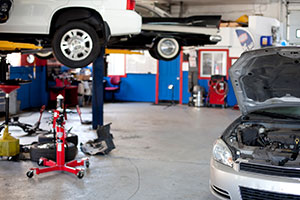If you’re planning to start a business or expanding your current one, then you’re likely wondering about the various types of Business Insurance available. Your business doesn’t need every type of insurance out there. Knowing the basics and how they differ will help you build a coverage package that protects your business and your customers. See the types of Business Insurance available to you below.
Business Auto Insurance
This type of insurance is tailored to your vehicle’s use, including personal with business use or strictly business use. If you are self-employed or an entrepreneur, you may not need a vehicle exclusively for work yet. However, you may use your vehicle for business purposes. In that case, coverage is like that on a personal Auto policy but with some additional advantages, sometimes called endorsements. For those who have a vehicle dedicated to their business, Business Auto Insurance can be customized for that purpose. Learn more.
Business Interruption Insurance
Of course, there are also certain types of Business Insurance that protect more than just physical assets. When a business must temporarily stop or slow down its operations due to a loss, this coverage helps replace lost income. It can even help cover the expenses for operating in a temporary location.
Commercial Truck Insurance
This type of insurance is designed specifically for trucks and vans. For example, stakebeds, semi-trucks, box trucks, utility trucks/vans, food trucks, etc. Plumbers, electricians, and laborers of various sorts rely on Commercial Truck Insurance to offer more comprehensive protection that often includes higher limits on coverage. This type of insurance is especially desirable as it can also cover tools and equipment carried in the vehicle. Learn more.
Cyber Insurance
The demand for this Cyber Insurance is on the rise. We live in the data and information age. Therefore, even the smallest company has proprietary data and customer data that can make them liable for damages. Whether it’s human oversight or weaknesses in infrastructure and security, this coverage helps protect your business from financial damages that can result from a breach. Learn more.
Business Owners Policy
Also known as BOP, this coverage is very popular and convenient for small to mid-size businesses. It often combines General Liability, Commercial Property, and Commercial Interruption Insurance. It includes these types of Business Insurance coverages so your business can have optimal protection. Learn more.
Commercial Property
This type of insurance covers repairs or even replacement of business property that’s been damaged or stolen. Third-party property may also be covered when it’s in the possession of the insured business. Learn more.
Garage Liability Insurance
Like General Liability, this coverage protects a business in cases of property damage and bodily injuries resulting from business operations. However, this insurance is specifically tailored for customers in the automotive industry. Body shops, parking garages, service centers and such greatly benefit from this specialty insurance.
General Liability Insurance
This insurance protects your business when it becomes liable for bodily injury or property damage to another party. This includes an individual(s) or other business. You may also be covered for medical costs, legal fees and more. Learn more.
Employment Practices Liability
EPL Insurance offers financial protection for businesses when they face claims made by employees, candidates and contractors. Common claims surround harassment, discrimination, terminations and more. Learn more.
Worker’s Compensation
This insurance is required by most U.S. states. It protects employees who become injured or sick as a result of their employment. Medical expenses and lost wages are the most important matters covered by Workers’ Compensation. It’s one of the few Business Insurance types that you don’t want to go without. Learn more.
Contractor’s Bond
This bond is coverage that lends credibility to a business and peace of mind to its customers. It offers protection to customers when a contractor is unable to complete a job adequately or fails to fulfill the obligations agreed upon. Unlike other policies, the cost of the premium is affected by credit score, though it does not affect the sore itself. Learn more.
Directors & Officers Insurance
Litigation risk is significantly higher for a business’s officers and directors. This insurance protects them from claims brought by employees, customers, vendors, and even competitors. Learn more.
Inland Marine Insurance
Moving cargo such as materials, merchandise, and equipment presents unique risks. This coverage protects a business from losses that may occur when transporting such cargo by water or land. Learn more.
Commercial Umbrella Insurance
This insurance is designed to supplement existing policies such as General Liability and Business Auto Insurance. Therefore, it serves to cover losses that exceed the limits of its underlying policy. Learn more.
Surety Bonds
Unlike a Security Bond, this coverage is purchased to protect a third party. The three parties involved in a Surety Bond are the ones requiring the bond, the business purchasing the bond, and the insurance company that guarantees the fulfillment of a work agreement. The beneficiary can file a claim against the business if the terms agreed upon in a work contract are unmet.
Choosing the Right Types of Business Insurance
Evaluate your business and determine which insurance policies above offer the protection it needs. Several of the coverages can be purchased online through AIS. More comprehensive coverages can be explored by talking with a Business Insurance Specialist. They can compare various companies and coverages for you. Adequately protecting a business from potential losses is one of the best ways to ensure its long-term success.
The information in this article is obtained from various sources. This content is offered for educational purposes only. It should not replace the advice of a qualified professional. The definitions, terms and coverage in a given policy may be different than those suggested here. No warranty or appropriateness for a specific purpose is expressed or implied.

